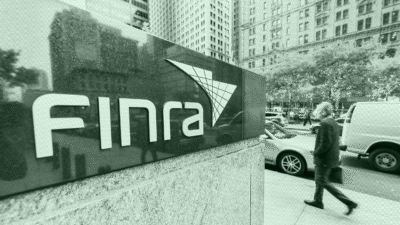Sign up for market insights, wealth management practice essentials and industry updates.
Vanguard’s more than two-decade-long reign as the only asset manager to offer special share classes of mutual funds may be coming to an end.
Back in 2001, the investment giant patented the method for creating exchange traded funds as a share class of existing mutual funds. But its patent expired last year. And, last week, Charles Schwab became the latest in a group of more than a dozen financial firms that have filed applications with the Securities and Exchange Commission to create ETF versions of their existing mutual funds. The structure allows asset managers to bring the famous tax efficiency of an ETF into the mutual fund realm.
It could also have significant impacts on capital gains taxes by taking advantage of the ETFs’ ability to create and redeem shares in kind. Vanguard has now used the structure in 14 stock funds, as of a 2019 report, and while these funds have booked $191 billion in gains, they report $0 to the Internal Revenue Service.
“We believe the multi-class structure provides benefits to all investors,” a Schwab spokesperson wrote in an email to The Daily Upside. “We believe the active ETF industry will continue to evolve, and we are taking a thoughtful approach.”
Advantage, Vanguard
While the new share classes could revolutionize asset management, it’s unclear whether or not the SEC is willing to open up the structures to the entire industry. “Everyone’s moving to an ETF because they’re more tax-efficient,” Aisha Hunt, principal of the law firm Kelley Hunt & Charles, told The Daily Upside. Hunt, who represents some of the applicants, including F/m Investments, said the potential benefits are “massive.”
“If you bolt on the ETF share class on a mutual fund, you’re able to use that ETF wrapper,” Hunt said. These include the capabilities to use advanced portfolio management techniques, like heartbeat trades, to potentially defer capital gains taxes for shareholders, she said, and in some cases eliminate them completely.
Most major fund issuers now offer ETFs, which are popular with investors because they’re cheap and easy to trade. In recent years, billions of dollars of mutual fund assets have been converted into ETFs. A recent BlackRock report documented just how the industry is evolving globally:
- ETFs make up no more than 13% of equities and nearly 3% of fixed income assets by region.
- While global ETF volumes increased in the fourth quarter of 2023, full-year levels were lower than the record-setting 2022.
- Individual investors, particularly in the U.S., continued to participate in the ETF market, including in ETF options.
Pick Your Own Adventure
Schwab is now one of the largest firms to apply for the structure with the SEC, and joins a growing list of competitors, including Morgan Stanley, Dimensional Fund Advisors, Fidelity and First Trust. In total, there are approximately a dozen companies with pending applications with the SEC, according to a news report.
“It seems pretty ripe for consideration and approval,” said Morrison Warren, a partner at law firm Chapman & Cutler’s Investment Management Practice Group. “This is just another option, and there would be quite a few people who would want this.”
Vanguard’s two-decade head-start allowed its funds to hoover up 30% of the total equity ETF market. But that could change in the years to come.
“We’re really talking about a profound change in the asset management industry,” Hunt said. “Every large mutual fund manager will be incentivized to add a share class when that relief becomes more broadly available.”












